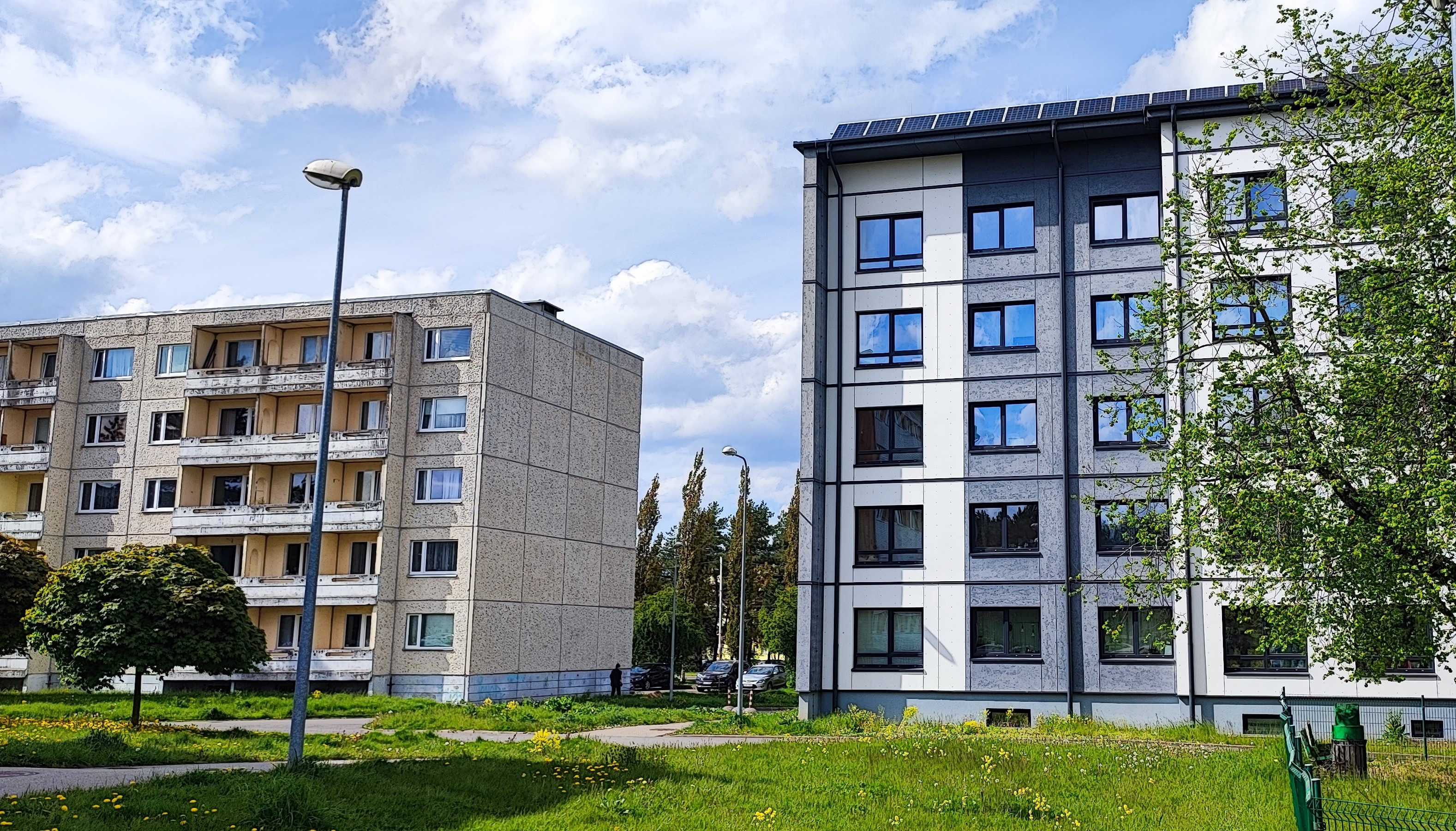Study Trip to Tallinn: Panel Housing, Renovation, and Sustainability in Practice
 Tallinn, 21–25 May 2025
Tallinn, 21–25 May 2025
How can large housing estates from the Soviet period become laboratories for sustainable renovation and urban innovation? This question was at the center of a study trip to Tallinn, organized by cities.building.culture project's partner - the Competence Center for Large Housing Estates in Berlin (Kompetenzzentrum Großsiedlungen e.V.). It brought together experts and practitioners from Germany and Estonia to exchange knowledge and experiences.
Over the course of five days, participants explored Tallinn’s pioneering approaches to the modernization of mass housing districts. The program included guided visits, presentations, and discussions with representatives of the Estonian Ministry of Climate, urban planners from the City of Tallinn, researchers from Tallinn University of Technology (TalTech), and specialists in construction and renovation technologies.
A highlight of the visit was the tour of Mustamäe, one of Tallinn’s largest panel housing districts, where Estonia’s first serially renovated prefab apartment building — Akadeemia 5a — served as a case study. Participants learned about the technical, financial, and participatory aspects of the renovation process, including improvements in energy efficiency and upgrades to communal spaces and social infrastructure.
Further sessions covered Tallinn’s SOFTacademy program for neighborhood renewal, the use of digital tools in municipal planning (e-Estonia), and Estonia’s timber construction expertise, with insights from Wood House Estonia. Site visits to Telliskivi Creative City, the Noblessner harbor redevelopment, and the Krulli quarter offered additional perspectives on how post-industrial and residential areas are being transformed into vibrant urban environments.
The study trip highlighted Tallinn’s commitment to integrating architectural heritage, climate-conscious planning, and citizen participation in its urban development strategy — offering valuable lessons for the future of large housing estates across Europe and Post-Soviet countries.







